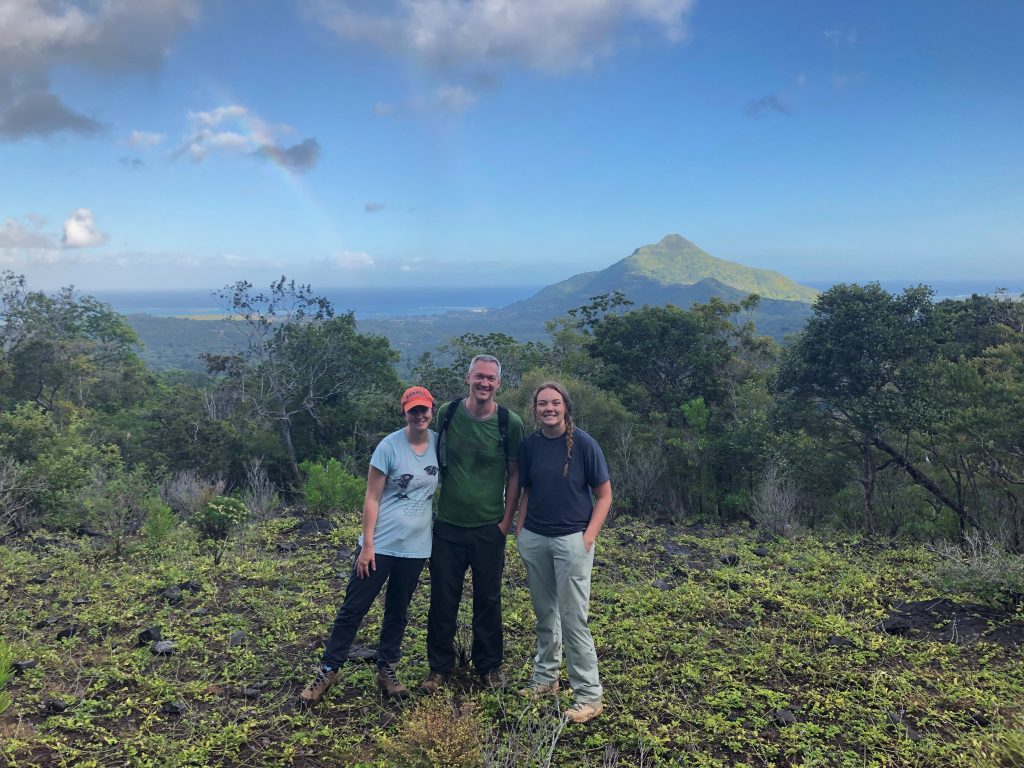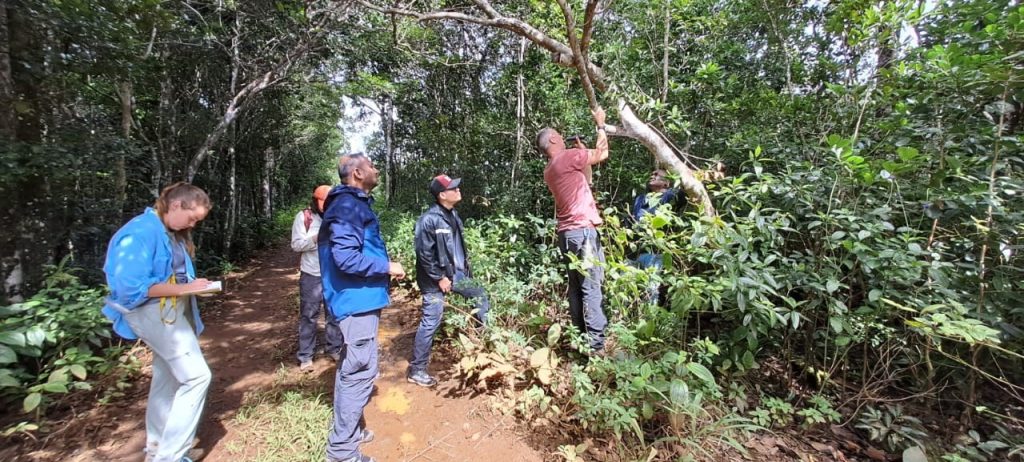Professor, student enjoy summer globetrotting for geckos

COLUMBUS, Miss.– Dr. Travis Hagey, assistant professor of science at Mississippi University for Women, has a bit of an affinity for geckos. Specifically, he wants to get to the bottom of how the creatures’ toe pads work.
This desire is the basis for his research which recently took him as well as a W student across the globe to try and get closer to an answer.
“I spent the later part of this summer doing some field work and visiting some museums. I got to go to Europe and spend a week there and then go to an island called Mauritius,” Hagey said.
Junior biology major Maddie Guerin accompanied Hagey on the latter part of his journey, with both conducting field research on Mauritius.
Specifically, the pair were studying the Mauritia Day Geckos, of which there are four distinct types: Blue-tailed day gecko, Mauritius ornate day gecko, Mauritius upland forest day gecko and the Mauritius lowland forest day gecko.
“The reason we were studying them is because all of the day geckos on Mauritius share a really recent common ancestor. These geckos weren’t on Mauritius, they trace their ancestry back to Madagascar. About 6 million years ago, one day gecko got to the island and over time, split into these four different species. Which is why they are a really nice group to study because any differences between them happened because of what they are doing currently or recently on Mauritius,” said Hagey.
For a few weeks, Hagey and Guerin, as well as some local contacts spent their days in the forest chasing geckos.

This was a new experience for Guerin, and she enjoyed it.
“I’ve never been out of the country, so it was a very crazy experience for me. I got to see what it was like to do field work every day. I love reptiles, especially lizards, so to get to go somewhere across the world to study them was really fun and a really good experience,” she said.
Catching the lizards was only half of the battle though. After they caught them, they needed to be studied.
“Field work is not easy. We were working 16-hour days and then we’d have to come back and work all night to process all of the animals,” Hagey said.
The work continues even today. Guerin is continuing to study the samples taken from the island as part of an independent research study.
Hagey is also working to get more in-depth data on the toe pads. This includes analyzing the feet of the specimens they brought back as well as the casts of the surfaces the geckos were found on.
In addition to the time spent on Mauritius, Hagey spent a week in Europe doing research at natural history museums.
He visited three museums to study preserved specimens of two extinct species of geckos. He took photos of the toe pads and feet to further research them.
“It was a super fun project and trip. It was really great being able to take a W undergrad. That was really kind of a broader impact. She got to have a really good time and experience different food and different cultures as well as see actual research on the ground. She got to see how this project is going to go from the ground up,” said Hagey.